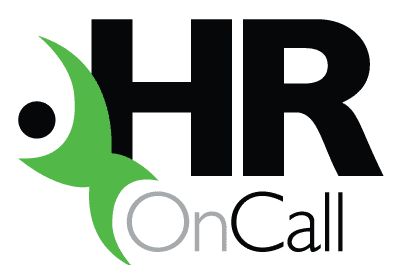There’s a lot going in in the world and in your business. It can be easy to miss important changes to HR legislation that impact your employees. That’s why we’ve created this timely summary of recent updates and upcoming legislation to the way employers are required to address sexual harassment in the workplace.
Why it’s important to stay informed
Keeping on top of changes to HR legislation and industrial reforms means you can be sure your business is compliant and that you are doing the right things by the law and by your employees. This is especially critical during these unprecedented and disruptive pandemic times when it can be easy to become overloaded with information and miss important updates.

Changes to sexual harassment legislation
On the 8th April 2021, the Federal Government released their Roadmap for Respect which is a blueprint for increasing protections against sexual harassment in the workplace. Legislation is expected to be introduced into parliament by the end of June 2021.
The key focus of legislative changes is to foster a shift away from a reactive complaints-based approach in responding to sexual harassment to employers taking proactive, positive steps to prevent sexual harassment from occurring in the first place. This shift puts a greater onus on employees to create a safer workspace and to address and respond to inappropriate behaviour more effectively. Now is the time to get your business ready.
What are the specific changes?
All the changes are designed to simplify and strengthen existing protections against sexual harassment in the workplace by emphasising prevention as opposed to a reaction-based approach. The changes include:
· clarifying that sexual harassment can provide a ‘valid reason’ for dismissal in determining whether an employee has been unfairly dismissed
· including sexual harassment in the definition of ‘serious misconduct’
· ensuring the Sex Discrimination Act applies to sexual harassment
· ensuring victimisation under the Sex Discrimination Act may form the basis of a civil action for unlawful discrimination
· extending the time limitation for complaints under the Sex Discrimination Act in the AHRC to 24 months (rather than the current six months)
· extending the Sex Discrimination Act to include judges and Members of Parliament
· extending ‘stop bullying orders’ in the Fair Work Commission to include sexual harassment
How should your business prepare?
Your business must take the following steps to prepare for these legislative changes:
1. Review your workplace culture
Now is the time to consider and reflect on whether your workplace culture may indirectly foster sexual harassment in some way. While it may be a difficult thought to consider, there can be a range of low-level, unconscious beliefs, attitudes and behaviours which can perpetuate instances of sexual harassment in the workplace. These include:
- Lack of awareness in the workplace about the legal consequences for both employees and the employer if they engage in inappropriate workplace behaviour
- Not having clear and transparent company communications about how any matter of sexual harassment raised with a manager would be handled
- Considering sexual harassment as something managed by HR, not the responsibility of every manager and employee within the company
- Inappropriate workplace behaviour modelled by managers and leaders in the workplace
Now is the time to be open and transparent about your workplace culture and make the necessary changes to foster greater respect and proactively discourage sexual harassment.
2. Review and update workplace policies
Employers should review and update all company policies and procedures for managing misconduct, fostering respect in the workplace or equal employment opportunity, and complaints handling. Specifically, these policies should be considered and updated in line with the shift towards creating a more proactive and protective workplace – rather than just dealing with issues once they arise.
Another critical consideration in light of the new legislation is ensuring that all employees, and particularly vulnerable employees, have adequate access to complaint procedures and processes.
3. Provide training at all levels
One of the best ways to create a culture of respect and safety within an organisation is to ensure that every person, including employees, managers, executives and board members, are included in frank and transparent conversations. Don’t assume everyone knows what behaviour constitutes sexual harassment; there are many socially tolerated, low-level actions that create risk or harm in the workplace. Employers must review training programs and update them if they are no longer fit for purpose in light of these legislative changes.
We can help your business stay compliant
Having a trusted HR partner means you can focus on your business – while we focus on protecting it from HR risk and non-compliance.
Call us for a free, no-obligation conversation about how we can help.

